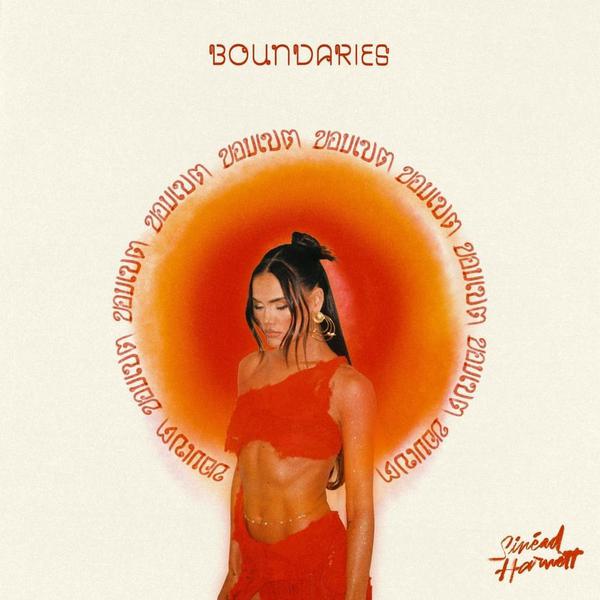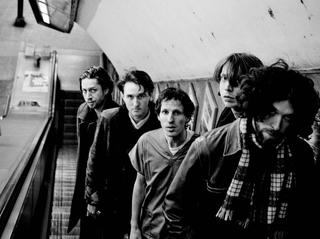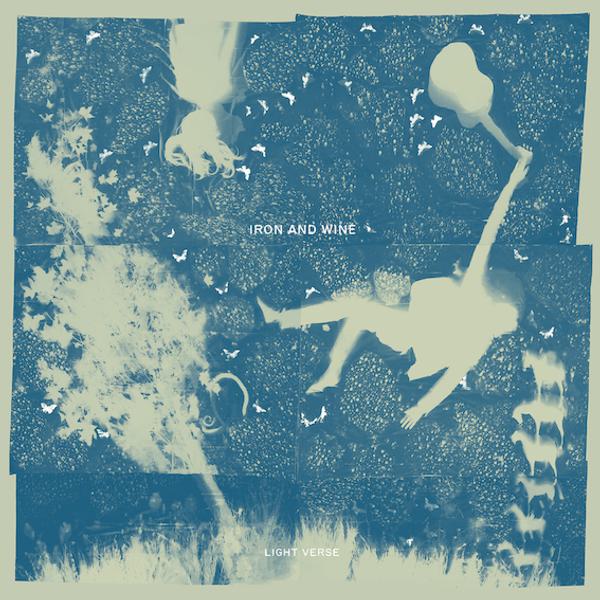
Lou Barlow of Sebadoh: “Doing everything ourselves is kind of a necessity”
Fourteen years is a long time in anyone’s money, that’s for sure. In 1999 I was recovering from a first shambolic performance at university (graduating class of 1998, yo) by working in that same university’s bookshop, thus wilfully subjecting myself to dealing with people more cut out for the uni life – look at them, buying books and the like! It was though, the year I bought my first Sebadoh record, after a few years of the band floating around the periphery of my musical consciousness. The Sebadoh turned out to be – while not the band’s best work – an excellent purchase, opening me up to a glorious alt. rock back catalogue, at the heart of which stands the impeccable song writing of Lou Barlow and his long-time collaborator Jason Loewenstein.
Little did I know I’d have to wait another fourteen years for the chance to buy another Sebadoh record, never mind be getting the opportunity to write about it. A lot has changed since 1999 for Lou Barlow (and me, but this isn’t about me, okay?) both musically and personally – who would ever have suspected he’d get back together with J Mascis and Murph in a reunited Dinosaur Jr(Barlow was kicked out of the band circa 1988 thanks to a breakdown in his relationship with Mascis)? And who of us really expected another Sebadoh record after all these years, despite the band touring various reissues over the years under the guise of the classic band lineup: Barlow, Loewenstein and another chap who Barlow has an “interesting” relationship with (more of which in a bit), original drummer Eric Gaffney. Yet it took another change, new drummer Bob D’Amico joining, to finally get Barlow moving on this new album, the rather fine and punchy Defend Yourself. Twenty five years and 9 albums in the only thing that hasn’t changed is the music Sebadoh produce: still a heady mix of the plaintive and the rocking (and probably songs about smoking weed), just as it’s always been. The album reaffirms the song writing talents of Barlow and just how consistent in quality – even if the sightings are rarer these days – he’s been since 1989. As much as legend status is handed out like sweets these days, it’s safe to say Lou Barlow is a legend , at least in indie rock circles.
Defend Yourself was written amid personal turmoil for Barlow; he’d split up with his wife and started a new relationship, and the songs here document this transition alongside the worries of fatherhood and family life in general. If that doesn’t sound enticing as a prospect, just remember how good Barlow is at making breakups and emotional troubles sound like the best thing in the world. I spoke to the Sebadoh front man recently to chat about Defend Yourself, and what’s changed since 1999…
I say to Lou that the obvious place to start is the fourteen year gap between The Sebadoh and Defend Yourself. So what took so long? “Well, we’ve been touring on and off since, I think, 2003 and I had the Dinosaur Jr reunion in 2005 and that’s kind of dominated my time,” says Barlow. Was there anything in particular that kick-started the recording? “It kinda took until Bob D’Amico joined the band; he’s been collaborating and working with Jason since 2002 at least, so once Bob joined the band it really clicked.” D’Amico joined the band for the tours in support of the Bakesale and Harmacy reissues, and it’s clear that he fit right in: “Touring was really good,” reveals Lou, “and I think that’s when we really started to definitively think about doing a new record. Then it was just a matter of time and finding the right scheduling to do it. We started talking, rather than saying ‘we should do a record’ we were saying ‘WHEN we do the record!’ and it happened!”
Given that Barlow isn’t slow in giving his opinions on bandmates old and new, I ponder the question of whether or not another Sebadoh record would have actually happened had original drummer Eric Gaffney remained as part of the “classic Sebadoh” trio – a powerful outfit who I saw in concert back in 2007, in raw and vicious form. So, was Bob the one who got it rolling? “Yeah, he was! Bob has a lot of energy,” confirms the frontman. “Eric is….I mean, Eric is a unique presence in the band but making a new record with him it just didn’t seem realistic! He’s, um, he’s not a real team player – let’s just put it that way! God bless him, but he’s not a team player. Bob has a lot of energy, and we just really clicked y’know?” So what did D’Amico bring to the band, did he write much for the album? “For my songs, Bob wrote his own drum parts; I brought very loose ideas to the band and then Jason and Bob helped me solidify those ideas.” And it didn’t stop there: “Bob wrote an instrumental for the record; recording with him was great. He was really curious, climbed inside the songs and found cool things to do – and it was fun!”
Although Barlow has been very open about the lyrical content of Defend Yourself in press for the record, it’s not a subject I wanted to broach straight away. But now, into the interview’s swing, I ask about the subjects he’s singing about: the breakup of his marriage, the start of a new relationship (documented openly in the album’s first track and single ‘I Will’) and worrying about his children. So, I ask Lou if this is something it was difficult to write about: “Well…we started recording the record before I left my wife and during the course of it that’s when everything kinda came down,” he begins. “But that’s actually typical: the last time we had done a record [1999’s The Sebadoh] that was the last period of upheaval in my life, and it just seems that Sebadoh records naturally occur when everything is kind of rearranging itself. We’re always in some kind of real transitional time – I didn’t plan it that way, but it’s what happened.”
Although Defend Yourself is a record that addresses these life-changing moments and decisions, it’s not a one that wallows in self-doubt or misery. As with many Sebadoh releases, it’s an upbeat and uplifting affair – classic indie rock played simply by three guys who still think they’re teenagers at heart. Is that the key to making a record about breakups and breakdowns to keep it simple, and avoid the whole ‘woe is me’ aesthetic? Lou tends to agree: “I’ve always felt, at least from my point of view, that my songs…even the ones about breakups… I think it’s necessary for me to, with stuff that’s happened, figure out a way to not make it pure depression, y’know? I know people listen to my songs or hear my voice and go ‘oh god, it’s all depressing!’ But for me, I don’t really feel that way; I actually think my songs take a turn before they get too bogged down with, like you said, the whole ‘woe is me’ part of it because I find that really off-putting.”
{pagebreak}

It’s nearly twenty-five years since the release of the first Sebadoh record The Freed Man, and Barlow and Loewenstein (who joined in 1989 but didn’t play on a Sebadoh record until 1991) are still as prolific now as they were back then…it’s just that we don’t see as much of it released as we did in the 90s. Prior, though, to the release of the album Barlow and co dropped a surprise EP, The Secret EP via the Bandcamp website, taking advantage of an outlet that didn’t exist the last time the band released music. I ask Lou if he’s got more freedom now than he used to when it comes to recording and releasing music, but the answer reveals that not as much has changed as you might think: “We did the EP on Bandcamp ourselves just so we could have something to play,” he reveals, “and it helped us buy plane tickets so I could fly Jason and Bob out here to record the album!” It turns out, though, that some old friends gave Sebadoh some welcome support: “In the end we went right back to Domino, because they’ve been great to us,” states Barlow. “Domino has been wonderful, y’know, and we’ve a label here in the States as well. I don’t think we were ready to go without a label and I don’t know if could have, to be honest. It’s too much work! That’s way too much to do that kind of stuff yourself – that takes a level of determination and ambition that I don’t have! I would rather spend my time thinking about new songs rather than doing endless amounts of clerical work.”
Sticking on a similar theme, I ask Lou if changing technology has affected the way he records his music: “The bulk of Sebadoh’s material in the 90s was recorded in a studio, and actually with the way that technology has gone now it’s really enabled the whole recording. In a way, the evolution of technology has made it possible for us to go way back to our very early beginnings – us recording ourselves.” And is this how Defend Yourself came together, self-recorded? “Yeah, so this was entirely self-recorded and done with just the three of us; we didn’t have engineers and we didn’t have a studio. But in the 90s we did spend a fair amount of money on studios but this time it was real basic.” Given his personal circumstances have changed since then, but he’s back playing with Dinosaur Jr again – does it feel like a curious mix of 20th and 21st century Lou Barlow out there trying to get a handle on things? “I guess in the 90s when we did have the studio time I didn’t worry,” says Lou. “I just did it. I didn’t have kids, you know, I was just living in an apartment with my wife/girlfriend and if I had to go into a studio I didn’t think about how much money it would cost. But now…I have children, it’s like – ‘oh my god!’ – saving money is absolutely crucial. You have to make the most of what you have and in so many ways we’re at the same kind of level we were at in the 90s. We still battle it out from record to record and try to make ends meet, but now it’s even more necessary to make sure that everything is cost effective. So coming back to that earlier band aesthetic, doing everything ourselves is kind of a necessity.”
You could put together a playlist of Sebadoh tracks from 1989 through to now, and aside from the quality of the recording you’d be hard pressed to guess which year any individual track was from, so consistent is the band’s sound and the song writing of Barlow and Loewenstein. So does anything from the outside world make it through to influence a Sebadoh record? “I guess the only thing I could say which consistently influences me is 60s garage music,” states Lou. “The thing about that is that I like really naturalistic recordings. I don’t like things that sound like they’re a commercial; things that sound really produced and compressed, full of effects…I mean, I love records like that, I listen to records like that, and I have no problem with records like that.” Does he have much of an interest in current trends or what’s the latest flavour of the month? “I love pop music!” he admits. “I mean, I don’t care. I could listen to the new One Direction song and take it and appreciate it for what it is…but when it comes to my own thing, it has to emerge from the Sebadoh world, from a place where we’re almost mostly influenced by ourselves.”
So the biggest influence on Barlow is basically himself? “Yeah, I want it to come from our little world of recording; I want the biggest influence on any Sebadoh record to be the Sebadoh record before it! I don’t know if that’s the right way to go about it, and in some way I wish I was more influenced by, or that I wanted to imitate, other things because that’s how people become successful – they imitate other things and tweak it. But with Sebadoh we’re kind of stuck in our own little ways.” But that’s what makes Sebadoh so special and cherished still, after twenty five years is it not? “I have a very specific style which I refer to on my songs,” says Barlow, “this kinda strange little drum beat and strumming style that I stick to and this record was no exception. I wanted to add to the Sebadoh discography and almost reference old Sebadoh records, rather than showing people the influences of what I listen to now.” I mention what often makes their songs stand out is that the bass and guitar are given equal billing; the bass isn’t just there as bedrock and nothing more, or it isn’t lost in the mix like some latter day Dinosaur Jr records. On saying this, Lou initially jumps to the defence of his old pal/foe J Mascis: “Ironically, what really influenced the recording and that whole attitude of the bass and guitar being equal were the early Dinosaur records,” he reveals. “On the first three Dinosaur records, the bass is prominent; it actually functions very much ‘in the mix’. The idea of the bass being totally drowned on Dinosaur records…that’s a style that J developed after I left! If you listen to the first three Dinosaur records, the bass is there, and they were a huge influence on Sebadoh when we transitioned into being an electric band – my bandmates were influenced by Dinosaur Jr, I was obviously influenced by being in the band so to me we were carrying on the original spirit of Dinosaur Jr.”
So as the keepers of the true flame, Sebadoh will keep on going. As Lou reveals there’ll be a 2014 tour to follow some select UK dates in October, I ask if there’s likely to be less of a gap between this record and the next: “I hope so, I would love to do that, it would be great. We just have to see how people respond and if people are willing to go see us! Does anyone want us back?” Daft question Lou, daft question.
Defend Yourself is available now on Domino.
Get the Best Fit take on the week in music direct to your inbox every Friday

Sega Bodega
Dennis
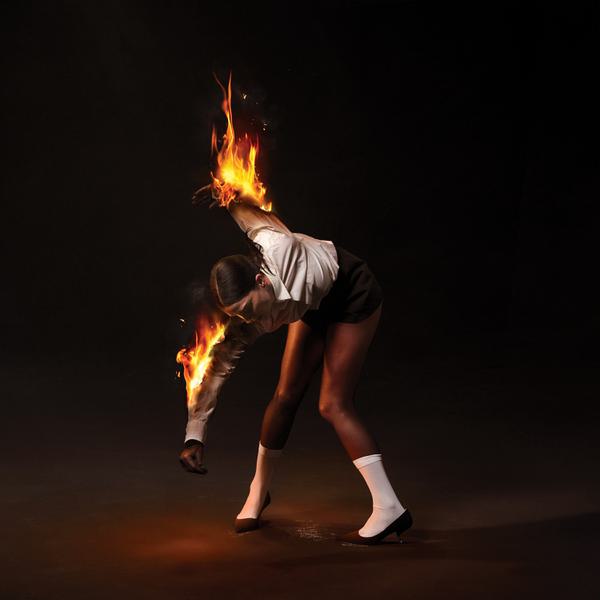
St. Vincent
All Born Screaming
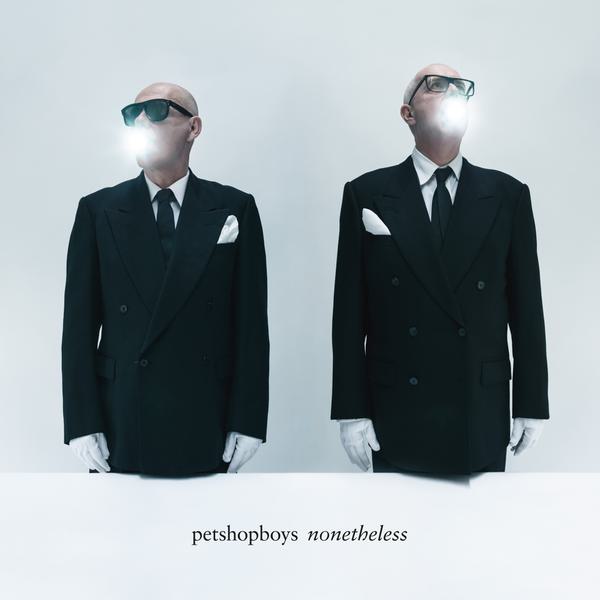
Pet Shop Boys
Nonetheless
